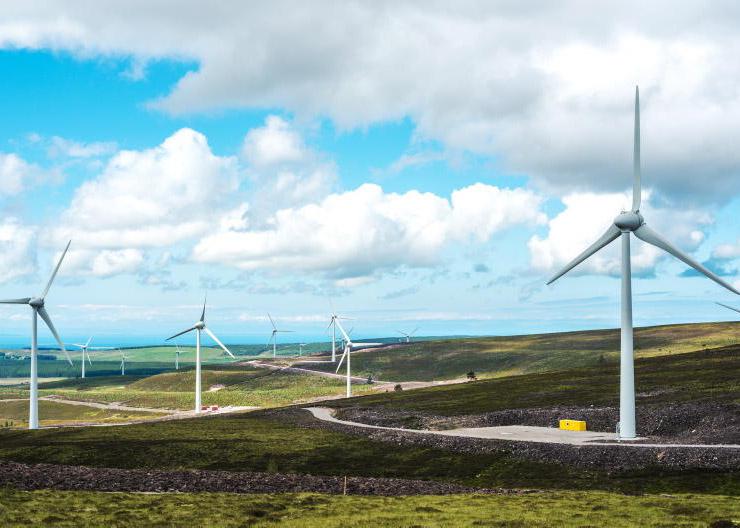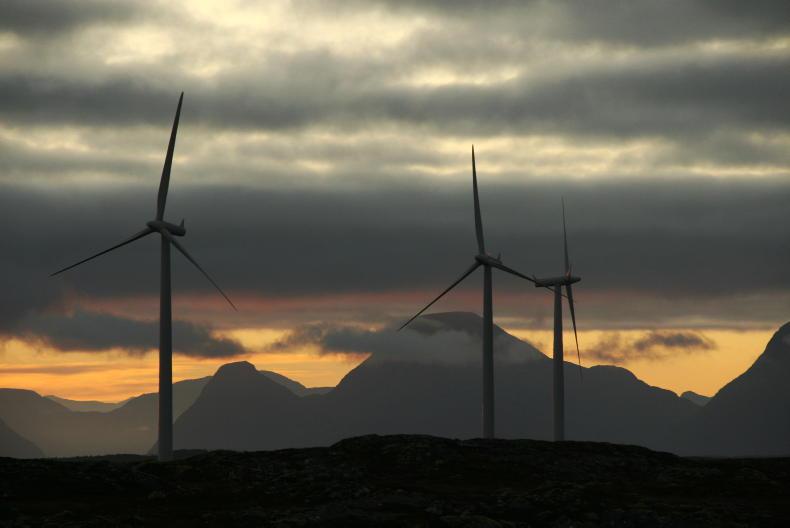The Scottish Government’s Farm Advisory Service (FAS) recently held a workshop on opportunities in hydrogen from farm renewables in Aberdeenshire. While wind and solar electricity have been among the most popular technologies for the production of renewable energy, speakers at the event believe that hydrogen is set to become more mainstream – with land one of the main resources required to produce the fuel.
Hydrogen is the most abundant element in the universe and it is highly combustible. The majority of the current industrial production of hydrogen involves reforming hydrocarbon fuels, such as natural gas. But hydrogen can also be produced by electrolysis of water and in cases where renewable electricity is used for this process, the resulting “green hydrogen” is carbon-free.
Paul O’Brien, an energy and low-carbon specialist with Scottish Development International, said that UK Government plans to cut support tariffs for renewable electricity next year could give way to increased small-scale hydrogen production.
“Green hydrogen could be the way forward,” he said. “There is the ability to store it or connect it with what you want.”
Benefits for farmers
The speakers said that hydrogen-powered vehicles could be an alternative to electric vehicles as the hydrogen can be filled from a fuel station in a matter of minutes. “Electric cannot satisfy heavy vehicles such as a trucks and trains where the batteries would be too heavy and slow to power up,” said O’Brien.
Farmers may also use hydrogen generated on their own farms to run agricultural machinery instead of diesel. Other options include generating heat for crop drying, fruit and vegetable production and use within the poultry sector.
However, Rod McGovern of Farm Energy Consulting stressed that the startup costs for the necessary equipment are very expensive and can range anywhere from €3m to €17m. As the technology continues to evolve and become more commonplace, prices are expected to decrease.
Hydrogen in practice
Aberdeen City Council already has around 35 hydrogen-powered vehicles including buses and waste trucks and there are plans to increase that number by the end of the year.
A pilot scheme to fuel ferries serving the Orkney Islands with green hydrogen is due to start operation in 2020. Scotland aims to phase out new petrol and diesel cars by 2032 and introduce low-emission zones across cities between 2018 and 2020. “It’s estimated that by 2050, 18% of the world’s energy will come from hydrogen,” said Aberdeen City Council official Louise Napier.
“We are encouraging the uptake but we are going to be limited pretty soon by how much hydrogen is available.”
Read more
The future after diesel – are we ready for it?
The Scottish Government’s Farm Advisory Service (FAS) recently held a workshop on opportunities in hydrogen from farm renewables in Aberdeenshire. While wind and solar electricity have been among the most popular technologies for the production of renewable energy, speakers at the event believe that hydrogen is set to become more mainstream – with land one of the main resources required to produce the fuel.
Hydrogen is the most abundant element in the universe and it is highly combustible. The majority of the current industrial production of hydrogen involves reforming hydrocarbon fuels, such as natural gas. But hydrogen can also be produced by electrolysis of water and in cases where renewable electricity is used for this process, the resulting “green hydrogen” is carbon-free.
Paul O’Brien, an energy and low-carbon specialist with Scottish Development International, said that UK Government plans to cut support tariffs for renewable electricity next year could give way to increased small-scale hydrogen production.
“Green hydrogen could be the way forward,” he said. “There is the ability to store it or connect it with what you want.”
Benefits for farmers
The speakers said that hydrogen-powered vehicles could be an alternative to electric vehicles as the hydrogen can be filled from a fuel station in a matter of minutes. “Electric cannot satisfy heavy vehicles such as a trucks and trains where the batteries would be too heavy and slow to power up,” said O’Brien.
Farmers may also use hydrogen generated on their own farms to run agricultural machinery instead of diesel. Other options include generating heat for crop drying, fruit and vegetable production and use within the poultry sector.
However, Rod McGovern of Farm Energy Consulting stressed that the startup costs for the necessary equipment are very expensive and can range anywhere from €3m to €17m. As the technology continues to evolve and become more commonplace, prices are expected to decrease.
Hydrogen in practice
Aberdeen City Council already has around 35 hydrogen-powered vehicles including buses and waste trucks and there are plans to increase that number by the end of the year.
A pilot scheme to fuel ferries serving the Orkney Islands with green hydrogen is due to start operation in 2020. Scotland aims to phase out new petrol and diesel cars by 2032 and introduce low-emission zones across cities between 2018 and 2020. “It’s estimated that by 2050, 18% of the world’s energy will come from hydrogen,” said Aberdeen City Council official Louise Napier.
“We are encouraging the uptake but we are going to be limited pretty soon by how much hydrogen is available.”
Read more
The future after diesel – are we ready for it?










SHARING OPTIONS